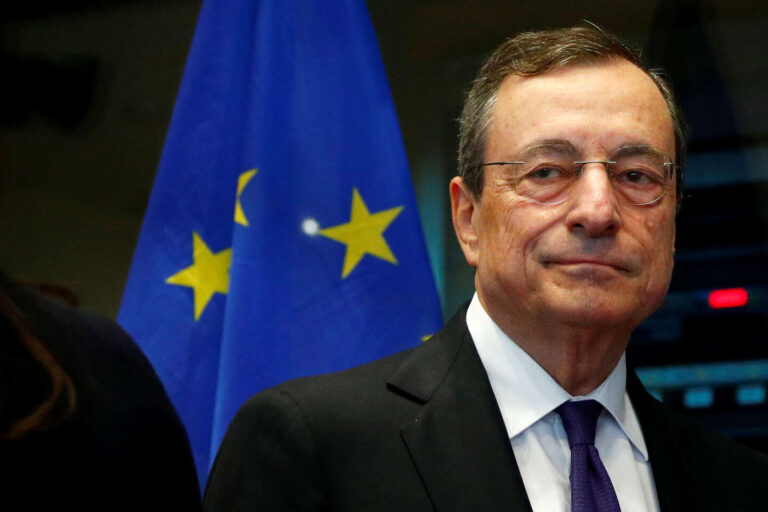Italy is on the offensive to save Europe, and that’s to be welcomed. In the same week, two former Italian prime ministers known for their commitment to Europe, Enrico Letta and Mario Draghi, made bold proposals to stop the European Union falling behind economically to the superpowers of the United States and China.
Speaking to participants at the European Conference on Social Rights in La Hulpe, Belgium on Tuesday (16 April), Draghi, the former European Central Bank President, called for “radical change” and “an ambitious redefinition of the EU on a par with what its founders did 70 years ago with the creation of the European Coal and Steel Community”.
Draghi, who is due to present a report on European competitiveness in June, believes the EU as originally conceived is not ready to take on big powers such as the US or China. “Our organisations, our decision-making and our financing are designed for yesterday’s world – before COVID, before Ukraine, before the Middle East upheaval and before renewed great power rivalry,” he said. If the EU does not want to be co-opted, he argued, it must have the tools to adapt to “the world of today and tomorrow.”
Fragmentation of the European internal market
That is the aim of Letta, who on April 18 presented a report on the reform of the internal market to the leaders of the 27 member states who gathered in Brussels, a task mandated by the European Commission. The former Social Democrat Prime Minister argues that the European single market, conceived at a time when “European countries were world powers”, remains “very 20th century” despite the global balance having been upended.
Interview Subscribers Only Enrico Letta: European economy is lagging behind and “we can’t wait any longer”
If Europe remained in its original structure, it would fall inexorably behind China and the U.S. Today, the fragmentation of Europe’s internal market not only prevents Europe from competing with the world’s major economic powers, but also creates jobs abroad and makes European companies prey to these powers.
Letta has put forward a number of proposals to encourage the emergence of European leadership in the fields of telecommunications, energy and finance. One of the key instruments for taking this step is the integration of capital markets at EU level, a project that was launched a decade ago. As in the United States, integrated capital markets would make it possible to mobilize excess private savings in Europe to finance long-term investments in the green and digital transition.
At the European summit in Brussels on April 18, German Chancellor Olaf Scholz and French President Emmanuel Macron fought to give impetus to capital market integration and defended the idea of launching a European Savings Product. This joint Franco-German effort is laudable, but it faces resistance from a dozen countries, notably Luxembourg and Ireland, that are clinging to their own powers on financial supervision and taxation. The issue is due to be discussed again in June.
For now, let’s hope that the Draghi report will create the electric shock effect needed to convince stubborn countries of the scale of the challenge facing Europe.
Column subscribers only: “Only an integrated capital market gives the EU the means to achieve its ambitions”
This is a translation of an original article published in French on lemonde.fr. The publisher is solely responsible for the French version.
Reuse this content
Source link


